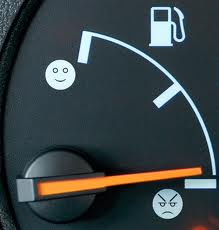 New Delhi, Jan 29: In a major policy shift that would bring relief to fuel consumers and the economy but shake up the domestic oil retail market, the finance ministry has asked petroleum ministry to price motor and kitchen fuels at export parity.
New Delhi, Jan 29: In a major policy shift that would bring relief to fuel consumers and the economy but shake up the domestic oil retail market, the finance ministry has asked petroleum ministry to price motor and kitchen fuels at export parity.
The directive, if accepted by the petroleum ministry, could reduce fuel prices by some 10% or more and bring down the government's oil subsidy by Rs 18,000 crore.
Motor and kitchen fuels are now priced at trade parity, or an average of import and export prices in the ratio of 80:20, respectively. Import price gets a heavier weightage directly in proportion to India's oil imports, which stands at over 80% of its needs.
While consumers and the government would benefit from export-parity pricing, refineries, particularly in the state sector built several years ago in the hinterland and the northeast, would be hit badly.
But the finance ministry has little option. An estimated Rs 160,000 crore fuel subsidy bill this fiscal and a widening fiscal deficit as well as the spectre of a ratings downgrade has pushed its back to the wall.
Export-parity pricing would automatically prune the fuel subsidy bill. This is how it would work: export parity would reduce the price at which refineries sell fuels to the marketing wings of fuel retailers. This would narrow the gap with pump prices and reduce the amount of loss that the government has to compensate to the oil retailers in cash.
At present, state retailers sell diesel at a price that is Rs 10.81 a litre less than what they pay their refining units. Similarly, their retail price for cooking gas is Rs 490.50 a cylinder less than the cost of purchase. For kerosene, the gap stands at Rs 32.17 a litre. The government pays cash to the retailers to bridge this gap.
Petrol, which is officially deregulated, is being sold at nearly market price and the government does not pay any compensation if the retailers suffer any loss by selling at below-market price, even if it is under verbal diktat from the oil ministry.
Export-parity would bring down the retail price of all fuels. This is one of the components of the finance ministry's big picture. Fuel prices are one of the major factors contributing to high inflation that leads to higher interest rates that stifle economic growth. Lower fuel prices would help cool inflation and create ground for the Reserve Bank of India to cut rates.
Together with a lower subsidy bill, the scenario would come as a breather for the government to stave off a possible ratings downgrade.





Comments
Add new comment